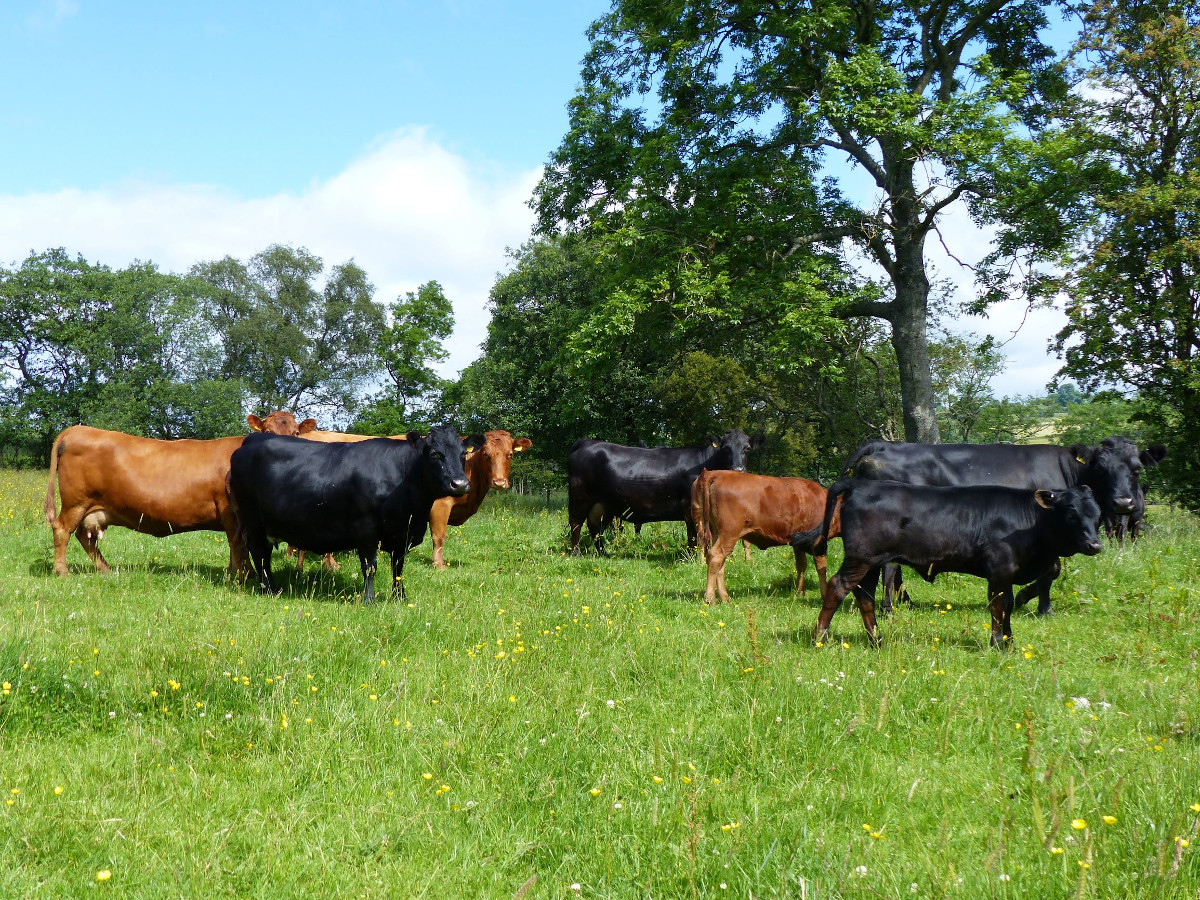Our Dexter Cattle
We established our Dexter herd in 2003. The smallest of the traditional breeds, the Dexter is perhaps best known as a small black cow, but they can also be red and occasionally dun. Our breeding bulls carry the genes for both black & red, so our youngstock may be either.
 Group of Dexter cattle.
Group of Dexter cattle.
About half the size of modern commercial cattle the Dexter's small stature and hardy nature means it is well suited to grazing our fell-side farm’s heavier wet ground and permanent natural pasture. The breed is now a popular choice for conservation grazing upland pastures.
Short or Non-Short?
There are two types of Dexter - shorts and non-shorts. Shorts are popular in the show ring at agricultural shows and on the smallholding; while non-shorts, with their slightly longer leg and bigger carcase are a better option for our meat business.
Rearing & Calves
The Dexter is a dual-purpose breed, producing excellent meat as well as good quantities of quality milk, we don’t milk our cows so the calves get the benefit from it. he cows usually produce a single calf once every 12 months. They are good mums and rarely need assistance when calving.
Because our management system is not intensive, the cows may continue rearing calves into their late teens. Calves are at least six months old when we wean; at this stage they may still be taking some milk from mum, but most of their daily intake will be from grazing. Grown slowly, our cattle are finished between 24-30 months. They are slaughtered at a local abattoir and traditionally hung or matured in our cold room on the farm. The resulting meat is beef like it used to taste, with a fine marbling of fat and wonderful flavour.
Not Just Beef
In the past the breed was used as a dairy cow but today, with milk prices so low, few milking herds have been retained. The milk is very good, naturally homogenised with high butterfat and protein levels, ideal for cheese-making.
Now Not So Rare
A Dexter breed society was set up in England in the late 19th century and a year book recording pedigree stock was established. When the Rare Breeds register was first set up the Dexter breed was included. No doubt partly due to a growing appreciation of the quality of its meat the popularity of the breed has now grown to such a level that it is no longer considered an endangered breed.
Our breeding cattle are pedigree registered with the Dexter Cattle Society, which means they have names and family trees as well as the normal cattle passport. A native or traditional breed, typical of the type of cattle the Celts and Romans would have used, the breed’s history is well documented.
